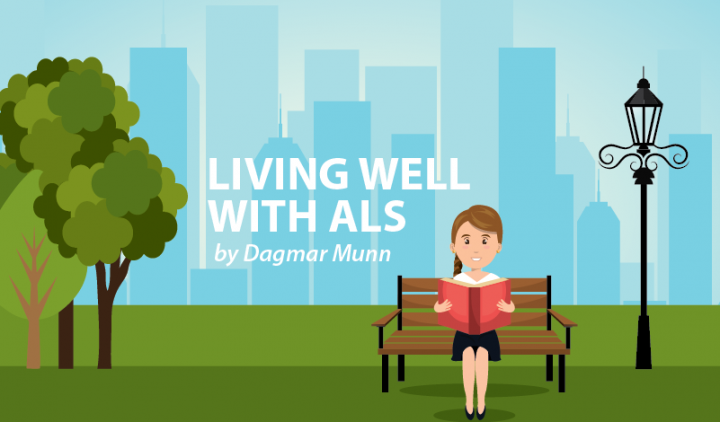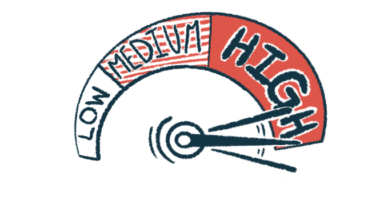Talking Myself into a New Habit

Recently, I noticed a surprising side effect from just a few weeks of following the stay-at-home guidelines: I’ve been talking less. A whole lot less. And to be honest, on some days, my conversations were limited to “yes” and “no” answers. That worried me.
Because I’ve worked hard to prevent ALS dysarthria, which first appeared four years ago, from robbing me of my voice. Backsliding is not in my plan.
Being isolated from people was limiting my social interactions, and I was getting out of the habit of conversing. Every day, I thought I would talk more, but I got caught up doing other things and never followed through. So, I followed the advice I’ve been giving to others: Ask what changed, what do I need, and who or what can help me.
The result? I created a daily program that will carry me through to the time when social isolation is in our rearview mirror.
What was I doing?
Among the many symptoms of ALS, losing the ability to speak is often considered the hardest to accept. My tongue had a mind of its own, I slurred words, and ran out of breath when speaking. In what I considered the ultimate insult, even the voice-activated devices wouldn’t respond to my commands.
Rather than giving up, I explored innovative options. I’ll credit The Living Speech Series for giving me my big “aha!” moment. I learned vocal techniques used by actors and singers, and it gave me the confidence to keep on talking and polishing my words.
Then, last winter, the speech therapist at my ALS clinic complimented me on my improvement. She even suggested I purchase a personal microphone so I could be heard in large groups and noisy restaurants.
Now, with everyone staying at home, my microphone sits idle on the table.
My home voice program:
- Warm up: Do 10-15 minutes of humming, diaphragmatic breathing, and stretches to help my posture.
- Practice: I’m enrolled in Project Euphonia, a free program sponsored by Google that uses artificial intelligence “to improve computers’ abilities to understand diverse speech patterns.” My goal is to record at least 25 sentences per day. This allows me to practice pronouncing a variety of words while knowing I’m helping Google’s AI apps get better at understanding speech disabilities.
- Engage: I challenge myself to have longer conversations with my husband or a with a friend online.
So far, I’m feeling better about my speaking abilities, and I’m ready to blend back into conversations when we all emerge once again.
If you find isolation is preventing you from talking, try my program. It’s one more example of changing our focus from what we can’t do to what we can do. And one thing I believe we all can do is live well while living with ALS.
***
Note: ALS News Today is strictly a news and information website about the disease. It does not provide medical advice, diagnosis, or treatment. This content is not intended to be a substitute for professional medical advice, diagnosis, or treatment. Always seek the advice of your physician or other qualified health provider with any questions you may have regarding a medical condition. Never disregard professional medical advice or delay in seeking it because of something you have read on this website. The opinions expressed in this column are not those of ALS News Today or its parent company, BioNews Services, and are intended to spark discussion about issues pertaining to ALS.







Comments